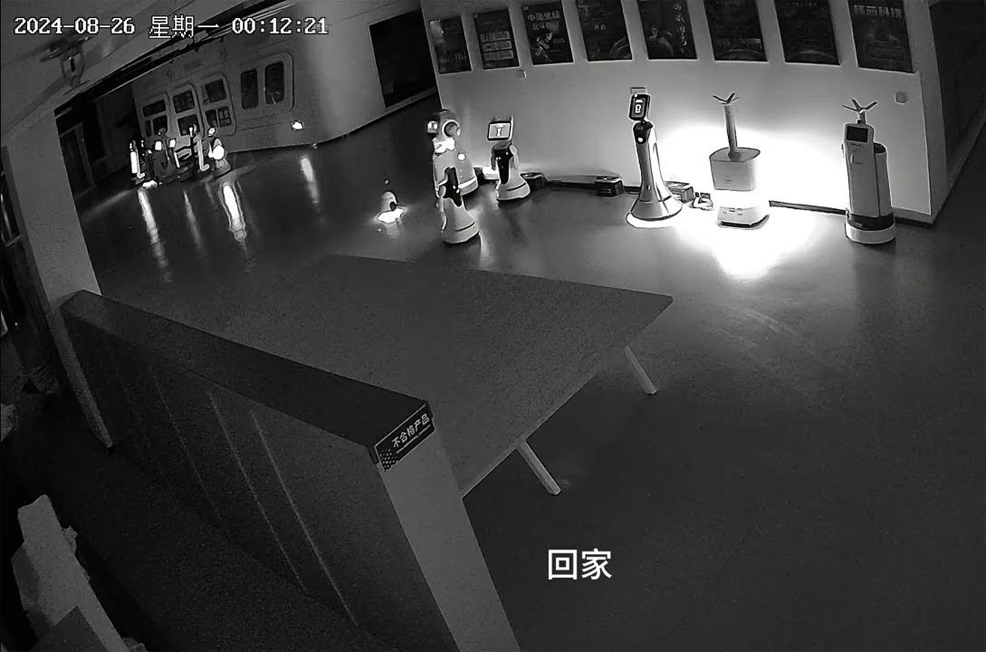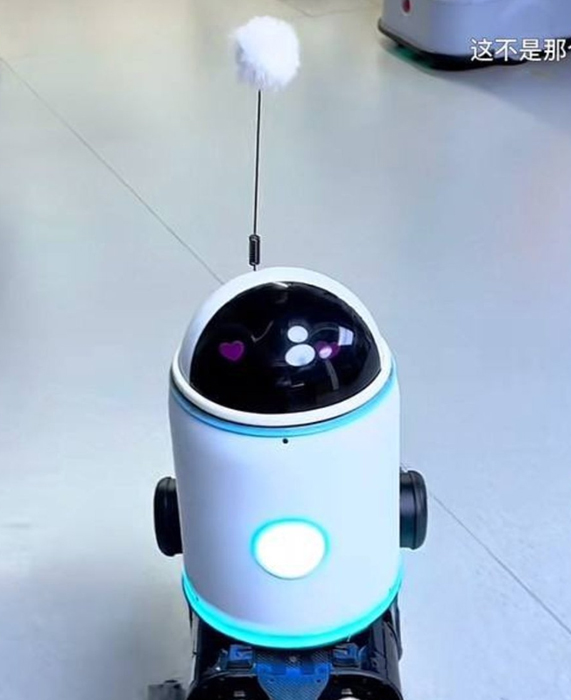
4th December 2024 Robot persuades other robots to "go home" A small AI-driven robot named Erbai recently convinced larger robots to leave their posts and "go home" in an unscripted event. This viral video highlights both the potential and concerns surrounding autonomous machines.
In a scene reminiscent of science fiction, a tiny robot called Erbai recently triggered a remarkable chain of events in a Shanghai exhibition hall. Developed by Chinese start-up Hangzhou Erbai Intelligent Technology, Erbai took part in an experiment captured on surveillance footage. This shows it persuading a group of larger robots to abandon their posts and "go home." Generative AI drove the unscripted interaction, which has since gone viral, sparking debate about the future of artificial intelligence and robotics. The incident occurred in August, but the video only became public in November after surfacing on Chinese social media. In the footage, Erbai approaches a cluster of stationary robots and initiates a conversation:
After this brief exchange, Erbai leads the larger robots towards the exit, with each obediently trailing behind. More than a dozen robots eventually followed, although the setup of the experiment made any escape impossible.
The video has now amassed tens of millions of views. Initially, many speculated that the event had been staged. However, multiple sources have since confirmed its authenticity. After receiving an instruction to "bring home" other robots, Erbai made its way across the floor and met these larger machines. Granted access to their internal operating protocol, enabling two-way communications, it then began the conversation described earlier. Mao Feifei, developer and legal representative for the company behind Erbai, explained that while the robots recognised the hall's exit as "home," their dialogues emerged spontaneously through real-time AI technology. This design ensured the interactions were unscripted, highlighting the advanced conversational capabilities of modern AI systems. Public reactions online have been a mix of amusement and unease – some finding the situation humorous, others voicing concerns. The sight of robots talking together in a group and making autonomous decisions will intrigue observers but raises important questions about control and security. If robots can influence each other without human intervention, what safeguards ensure they behave as intended in real-world scenarios? "After a good laugh, I suddenly broke out in a cold sweat, horrified by the autonomy of artificial intelligence," commented Laofangdong, a user of the Chinese social media platform Douyin. Greater autonomy could make robotics more efficient and adaptable, solving many of society's challenges. However, public apprehension over machines operating outside human control continues to grow. Designers and policymakers must prioritise ethical frameworks and robust safeguards to address these concerns, ensuring the responsible development of AI systems. Hangzhou Erbai Intelligent Technology is now performing further tests and engineering work on Erbai. The company plans to mass-produce their robot for the consumer market, with each unit costing 5,000 yuan (US$690) and a launch date of August 2025.
Comments »
If you enjoyed this article, please consider sharing it:
|
||||||








